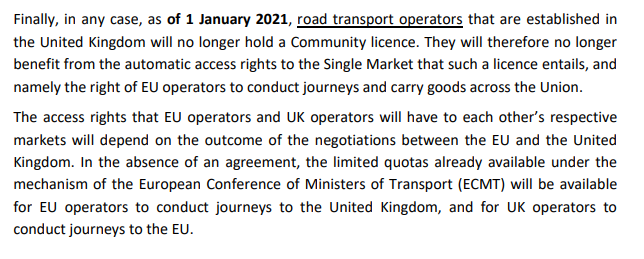After all, most borders have paperwork and the UK's trade with non-EU countries has always had it.
Entirely reasonable to wonder what the problem is.
Imagine a new rule: every time you commutte to work an official stops you to prove you can shuffle.
Eventually everyone would learn the dance...
But for a while the cost, and lack of trainers and shuffle-screeners would be disruptive.
Places that have goods borders tend to evolve trade that takes them into acount.
If you know you have to fill out paperwork per thing in your consignment, you're best off shipping big loads of just one or two things.
It's entirely feasible while in the EU/UK for a small business to move a truck full of 300 different odds and ends across a border in a way they wouldn't across say EU/Ukraine.
However, often, these are carried by big logiostics firms with massive in-house customs expertise and economies of scale.
Post-Transition, these firms will charge a premium.
To use our analogy above, businesses operating across borders where you always had to shuffle dance factor the shuffling time into account.
UK-EU supply chains were built assuming a lack of shuffling requirement.
Others, whether just-in-time deliveries or movements of highly perishable products, are much more vulnerable.
The challenge is that the UK's supply chain has been built around an assumption these problems won't be there. /end
P.S: An FTA doesn't eliminate any of these challenges.
Really just want to give a big shout out to the FBPE/Pro-EU heroes reading only the first tweet of this read, somehow deciding it's an endorsement of the Tories, and replying with abuse.
I can't wait for your next hilarious "TIRED OF EXPERTZ" tweet about Brexiteers.




